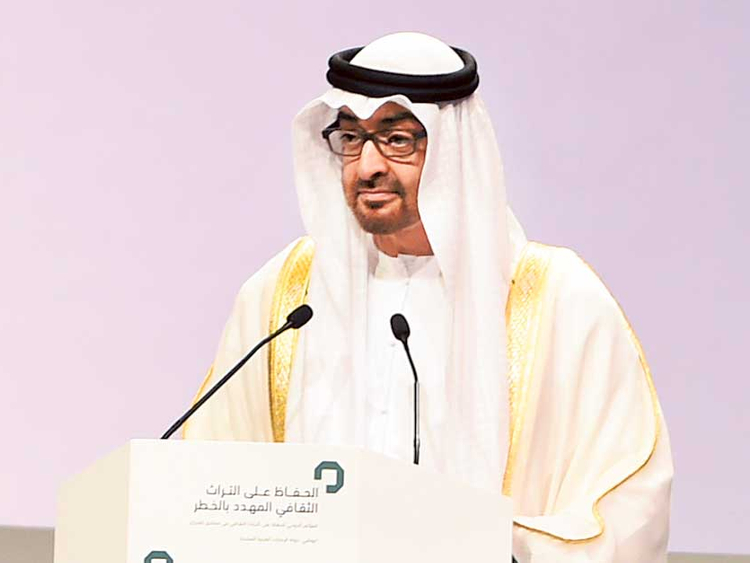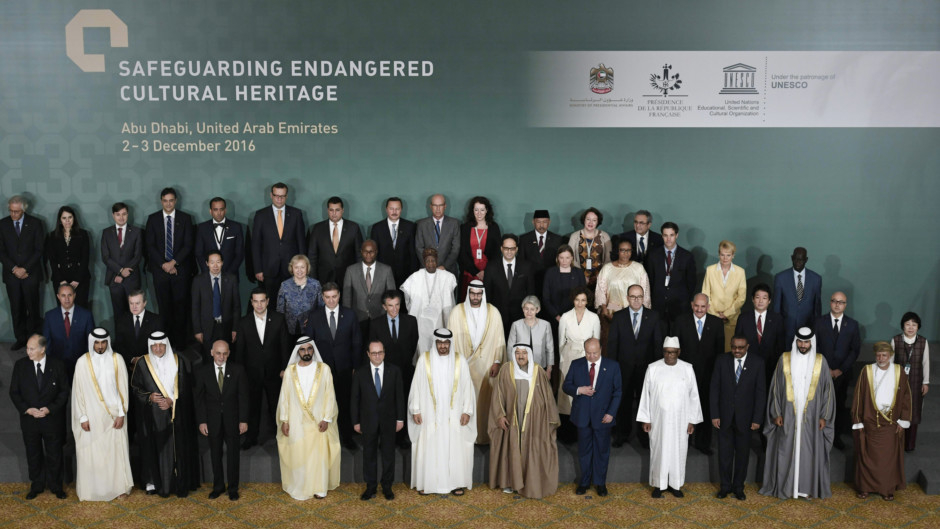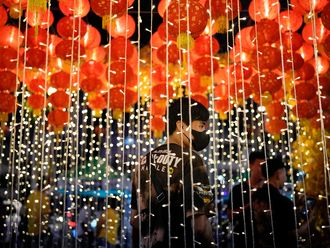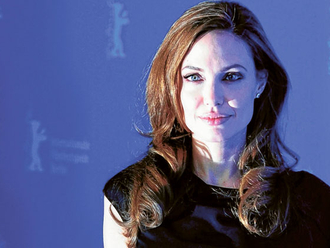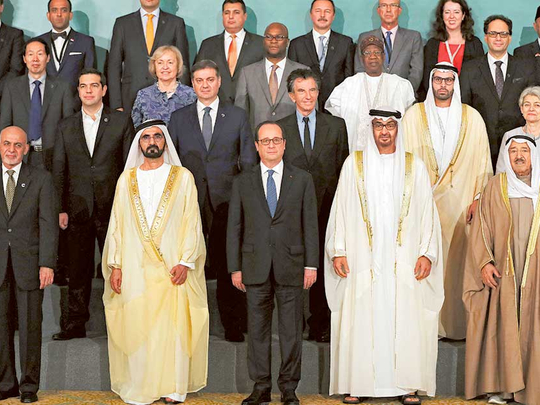
Abu Dhabi: A two-day global conference that concluded in the capital on Saturday called upon the UN Security Council to support international efforts to safeguard cultural heritage threatened by armed conflicts and terrorism.
The Safeguarding Endangered Cultural Heritage conference also decided to organise a follow-up conference in 2017 to assess the implementation of its initiatives like an international network of safe havens to temporarily safeguard cultural property and the first projects financed by the $100-million (Dh367 million) international fund initiated in Abu Dhabi.
His Highness Shaikh Mohammad Bin Rashid Al Maktoum, Vice-President and Prime Minister of the UAE and Ruler of Dubai, His Highness Shaikh Mohammad Bin Zayed Al Nahyan, Crown Prince of Abu Dhabi and Deputy Supreme Commander of the UAE Armed Forces, François Hollande, President of France, heads of states and senior ministers from several countries attended the closing session of the conference.
Also present were Kuwaiti Emir Shaikh Sabah Al Ahmad Al Sabah, Yemeni President Abd Rabbo Mansour Hadi; Afghan President Ashraf Ghani; Malian President Ebrahim Boubacar Keita; and Irina Bokova, Director-General of the United Nations Educational, Scientific and Cultural Organisation (Unesco).
The Abu Dhabi Declaration announced in the conference said: “At this conference, we, as Heads of States and Governments, and their Representatives, International Organisations and Private Institutions unite in support of international efforts to safeguard cultural heritage threatened by armed conflicts and terrorism.”
The declaration called upon the UN Security Council to support these goals in full accordance with the UN Charter.
The $100-million international fund will help finance preventive and emergency operations, fight against the illicit trafficking of cultural artefacts, as well as contribute to the restoration of damaged cultural property.
The international network of safe havens will temporarily safeguard cultural property endangered by armed conflicts or terrorism on their own territory, or if they cannot be secured at a national level, in a neighbouring country, or as a last resort, in another country.
Addressing the closing ceremony, Shaikh Mohammad Bin Zayed, said: “Cultural heritage is threatened now, more than anytime before, by conflict, terrorism and the exponential growth of illicit trafficking, despite the fact that such activities are condemned by all religions, international conventions and value systems. Preserving this cultural heritage is therefore a responsibility shared by all of us.”
“The UAE safeguards its cultural heritage because it is a symbol of the uniqueness of our civilisation, and a key pillar and inspiration for future growth and prosperity. It has hosted this important conference as a representation of its commitment to humankind, and we are confident [this meeting] will pave the way for future cooperation towards preserving cultural heritage,” he added.
“Taking care of global cultural heritage is not the responsibility of one state or community only but it’s the responsibility of all governments and peoples around the world,” Shaikh Mohammad asserted, adding that hosting the conference by the UAE reflects its civilisational vision and policies that attach much importance to all issues concerning the humanity.
“The UAE has paid incredible attention to its cultural heritage and drafted laws to preserve it from tampering and disappearing as it recognises that its cultural heritage makes up its identity and cultural, social and civilisational privacy through which it launched towards the future,” Shaikh Mohammad noted. “The UAE heritage is a source of inspiration and incentive to all generations,” he said.
Hollande, who addressed the closing ceremony, reiterated France’s commitment of $30 million towards the international fund, which would be set up in Geneva in Switzerland. The fund will train experts on preservation and restoration, 3D digitisation, inventorying and emergency evacuation of artefacts during times of conflict, he said. He said the Louvre museum in Paris would open its doors for those who need [to use them as a safe haven for works of culture during times of conflict]. “We hope other museums will join this network,” Hollande said.
He also strongly condemned the fanaticism that prompts the destruction of culturally important artefacts and monuments.
“[Those with] fanatic ideologies use trafficking, looting and the destruction of heritage as a means to finance their own activities, and as a means to prolong the persecution of those who [dare] think differently. But we are rich in our differences. This is why France and the UAE want to act with determination, and without delay,” Hollande said.
He said that the Abu Dhabi Declaration creates a grand international alliance to systematically combat such destruction of cultural heritage.
Shaikh Nahyan Bin Mubarak Al Nahyan, Minister for Culture and Knowledge Development, also addressed the closing session.


